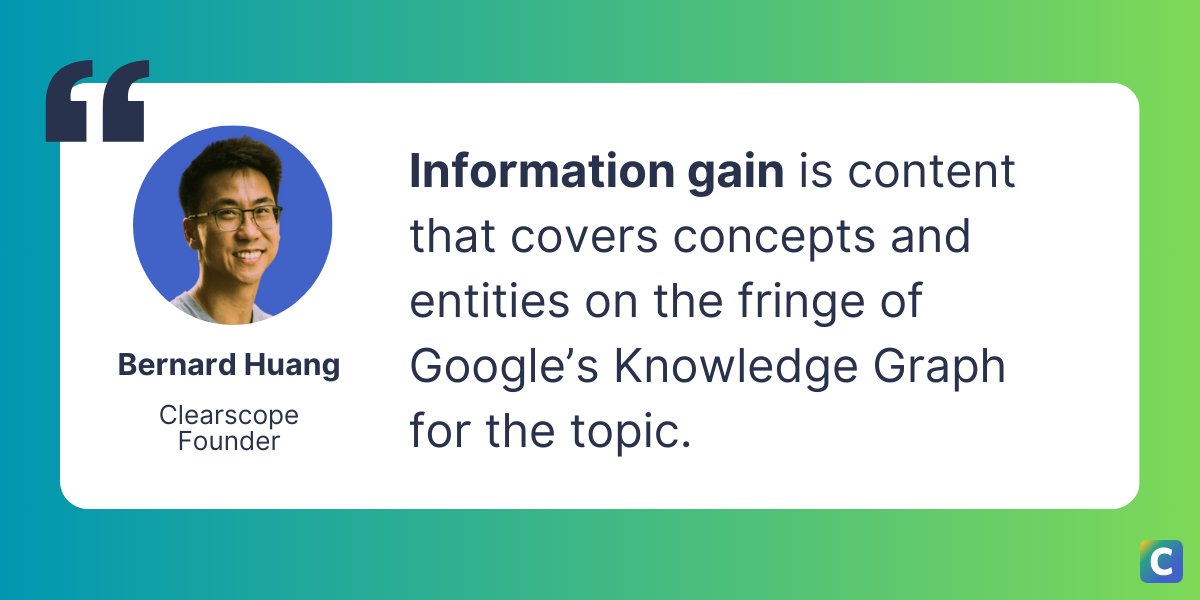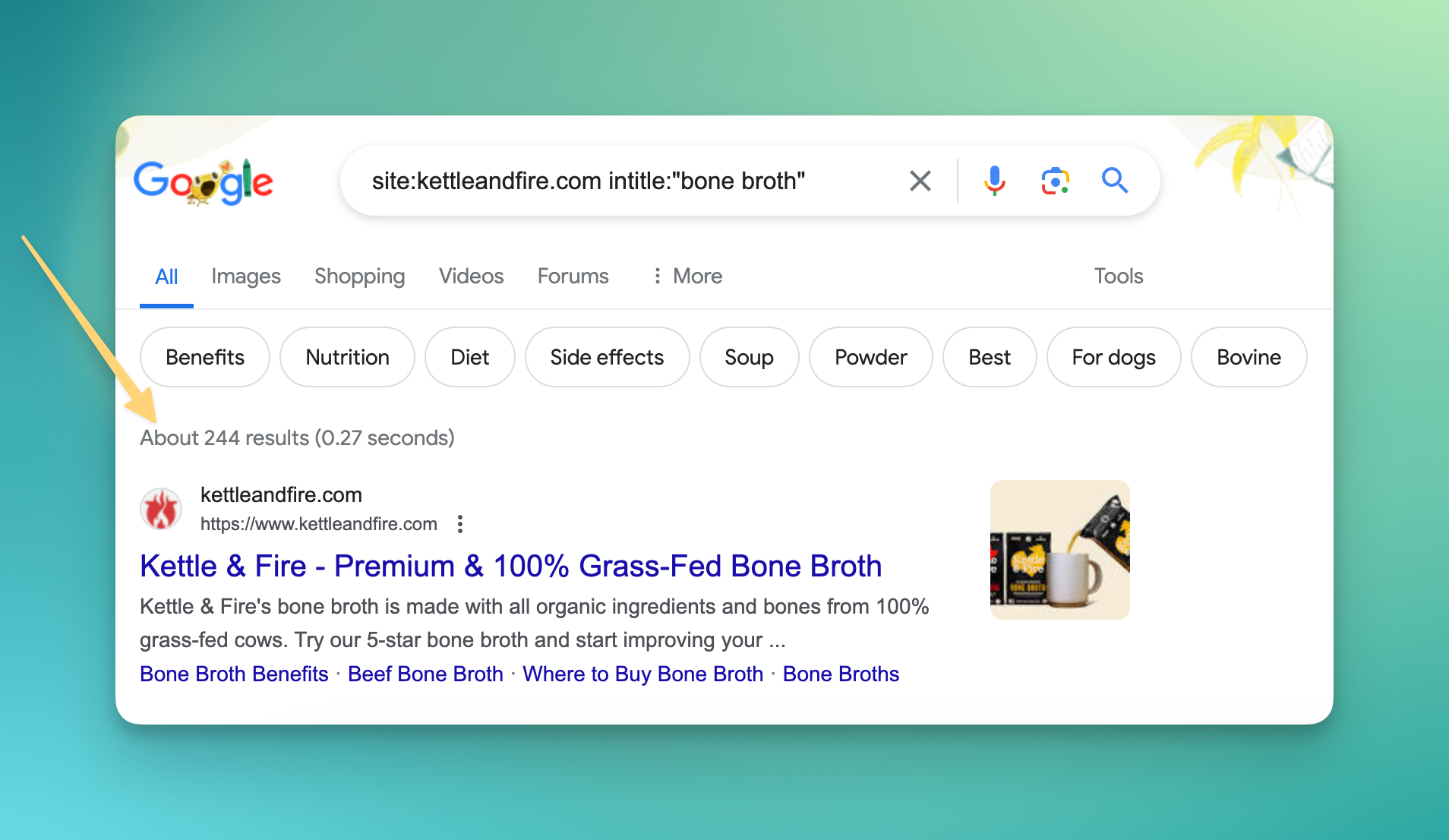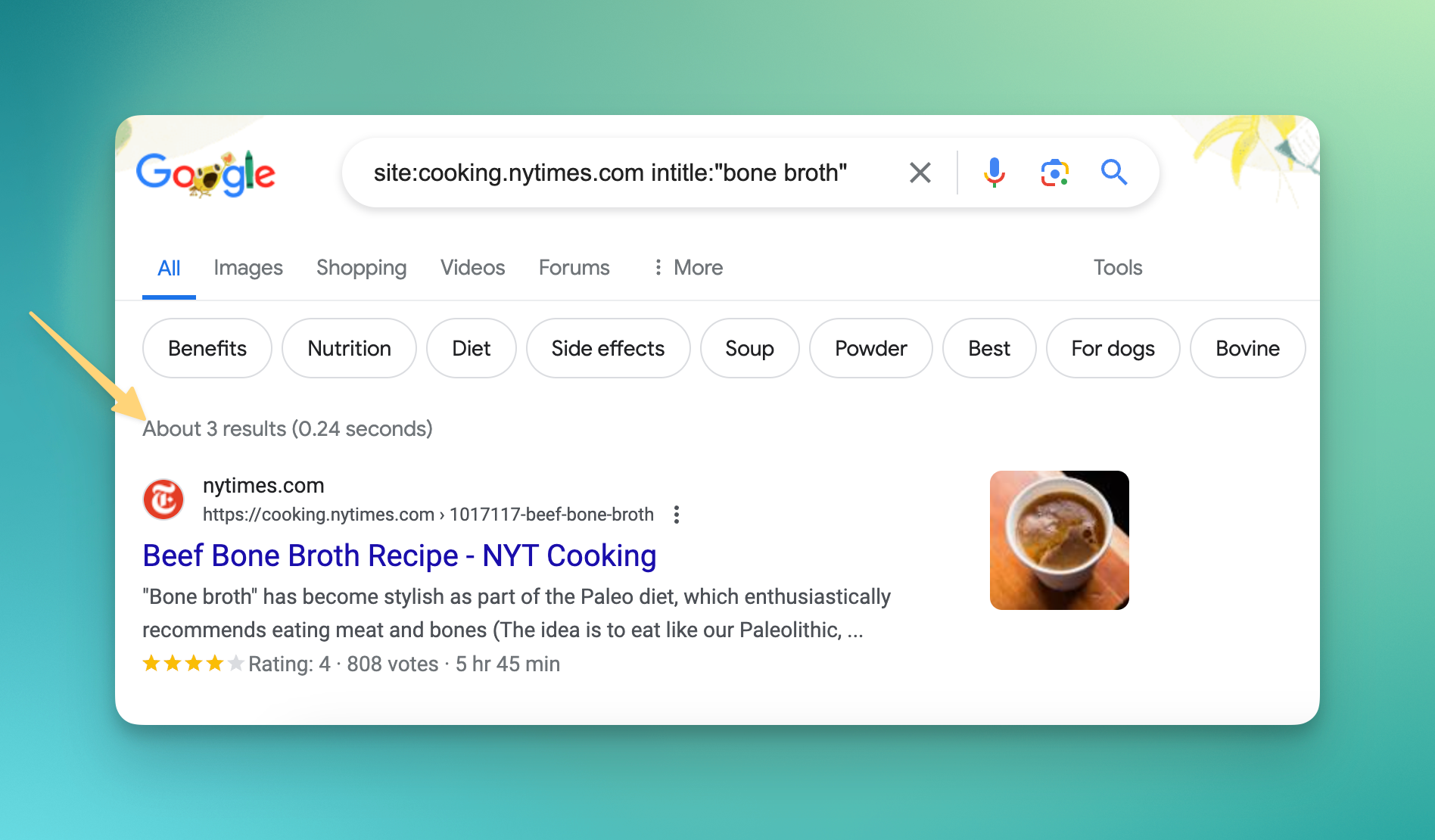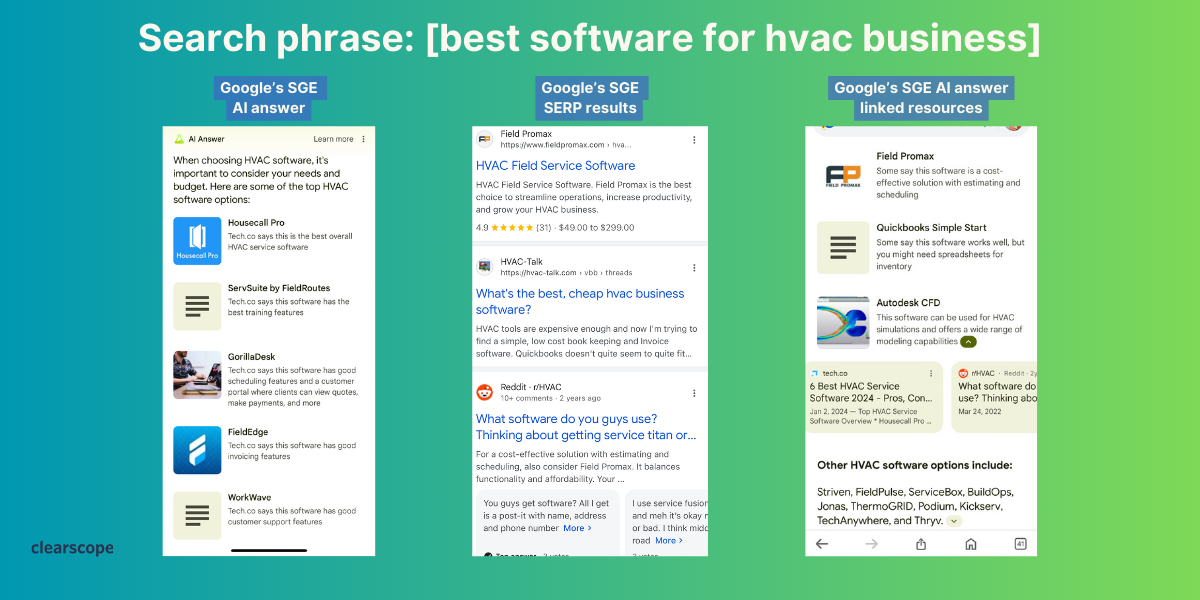Topical authority vs. information gain (with examples)
Topic: SEO
Published:
Written by: Bernard Huang
In the ever-changing world of SEO and digital marketing, two concepts often intertwine but remain distinct: topical authority and information gain.
However, it’s clear in Clearscope founder Bernard Huang’s recent LinkedIn discussion of Ranch-Style SEO that sometimes these two concepts get conflated.
But this article is here to provide some straightforward clarity.
What’s the difference between information gain in SEO and topical authority? Aren’t they the same?
Here’s where we’re getting a bit tripped-up in the SEO and greater digital marketing community:
Topical authority and information gain are not the same thing.
While topical authority speaks to the credibility of your website through consistent, expert-informed content, information gain signals your content's uniqueness and contribution to the overall digital conversation on a specific topic.
If you’re reading this and you’re asking yourself, Hey, aren’t these just more SEO buzzwords?
Well, maybe they are.
But the concepts behind the terms are where content-led SEO is headed.
And despite ongoing debates on how to actually define, build, and measure topical authority, many SEO practitioners across various sectors have observed that content strategies embracing this concept receive favorable recognition from search engines.

Topical authority vs. information gain in SEO: Let’s break it down further
Topical authority (sometimes referred to as brand authority) is an indicator of your website’s credibility, and you build it by consistently creating high-quality content about a subject that you’re an expert in. Read all about topical authority here.
Information gain is a signal of your content’s uniqueness in comparison to consensus content on the web. You create information gain through sharing survey data, customer testimonials, case studies, interviews, personal stories and experiences, and new perspectives. Read an in-depth guide on information gain SEO here.
While the idea of topical authority could be easily replicable through AI-generated content in theory—for instance, if a website AI-generated 300 articles on the topic of [best sneakers] to signal it was, in fact, a site about sneakers—information gain is not easily replicable through the use of LLMs.
For a deeper dive, check out our webinar with George Chasiotis of MINUTTIA on How to Build Topical Authority:
Topical authority example
Because the running joke is that Clearscope really loves to talk about bone broth, let’s head there first.
If you run a healthy recipe site that uses homemade bone broth in a lot of your recipes—and has one of the internet’s top recipes for chicken bone broth—it’s likely search engines will view you as a topical authority on [cooking with bone broth].
But it’s unlikely your site would be seen as a topical authority on [race cars] because you shared a recipe for your child’s race-car-shaped birthday cake last year. (No bone broth was involved in the making of the race car cake in this imaginary scenario.)
And that’s a good thing. We don’t want search engines serving up lawncare sites as results for vaccination rate data or preschool parenting tip sites for retirement planning advice.
For a quick example, just take a look at the amount of [bone broth] search results Google has indexed for The New York Times Cooking vs. Kettle & Fire, a bone broth producer.
This is a quick example that only requires the use of Google as a tool, but it illustrates how the search engines views Kettle and Fire as the clear topical authority on [bone broth] between the two sites.

Google shows about 244 pages indexed for Kettleandfire.com for the term "bone broth" in page titles.

Google shows about 3 pages indexed for cooking.nytimes.com for the term "bone broth" in page titles. And a subsequent search of nytimes.com shows approximately 10 pages.
Information gain SEO example
Let's look at another example.
If you’re a SaaS company for HVAC software who has been running a successful SEO program for the last five years, it’s likely you have topical authority in the area of HVAC business-related topics—including software.
In fact, you’ve got a full, well-performing library of “Tips for HVAC business owners” and “Best software for small HVAC business” type content, but so do your competitors.
And those top SERP spots are even more difficult to earn and keep with the advent of AI-generated answers in search results.
In order to create content that provides information gain, you’ll need to create content (or infuse into your existing content) fresh concepts or material that hovers on the outskirts of Google’s Knowledge Graph—ie, something that search engines haven’t seen much of before.
This could be a fresh case study on HVAC businesses or data from a customer survey that provides ROI predictions for HVAC business owners, for example.

For [best software for hvac business], we see Google provide an AI answer and linked resources that offer perspectives that can offer information gain to the topic at hand, rather than just a list of software options. Further results down Page 1 (under the AI-generated answer) offer perspectives and first-person experience.
Here’s why you need to utilize information gain SEO practices in addition to building topical authority
Information gain content can provide signals to search engines (and let’s be real here, also people—let’s not forget about the humans) that you’re using your established or growing topical authority to provide new knowledge and insights into your targeted topics.
You can very much expand your topical authority and compete with consensus content by creating information gain content, but it’s important to acknowledge—especially for some crowded topic niches—you may not be able to build topical authority through information gain alone.
Building topical authority in foundational topics is still crucial to compete well, even while focusing on information gain in your SEO content—and I’ve seen creating new foundational education from fresh angles succeed firsthand.
But I know this is easier said than done in crowded, congested, highly-competitive spaces if you’re working on a site that doesn’t already have an established brand or an existing library of older content to work with.
One of the best ways to work toward building topical authority while also creating information gain content is to go after the “fringe edges” of Google’s Knowledge Graph.
Create content within topics that don’t already have a lot of copycat and consensus content or tackle new and fresh perspectives.
Read more about why you need to care about information gain in Information gain in SEO: The simple guide to convincing yourself, your team, or your clients to do a quick pivot or get the simple, 3-part plan for adding information gain to your SEO content here.
Why Ranch-Style SEO Is Your Future-Proof Content Strategy
Learn what ranch-style SEO is, why it works, and how to use this perspective-driven content strategy to your advantage. Spoiler: It's the future of SEO.
Read moreInformation Gain SEO vs. Long-Tail Keyword Strategy: What's the Difference?
The concepts of information gain and long-tail keywords tend to get mixed up in the SEO community. Learn the difference.
Read moreTopical Authority: The What and Why
Discover how topical authority improves your SEO results and the best practices you can use to improve your website’s credibility.
Read more